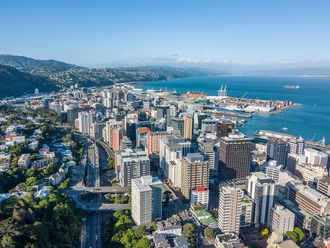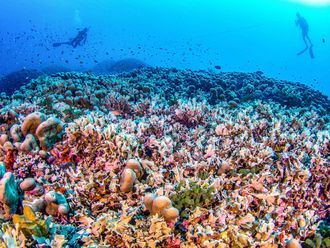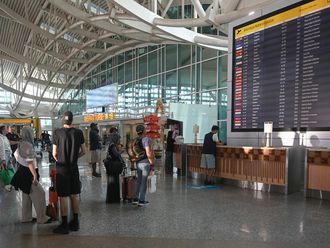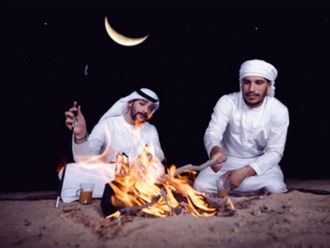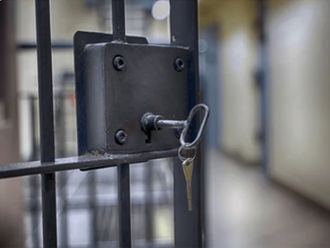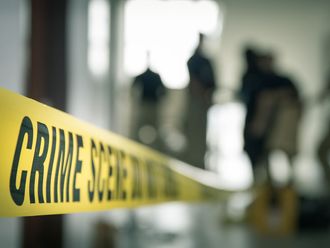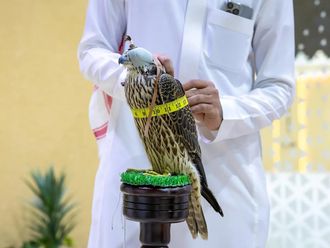PARIS: Rwanda is brushing aside allegations it is fomenting rebellion in neighbouring Congo, confident that foreign donors are reluctant to abandon a country on its way to becoming a rare African success story.
The gamble is a risky one for a state that relies on aid for 40 per cent of its budget, but Rwanda’s newly-awarded seat on the United Nations Security Council will boost its diplomatic clout and could further discourage any moves to cut assistance.
“They’ve made the calculation that they won’t be isolated or ostracised. And if they lose some donor support, they can absorb that,” said Mark Schroeder of US-based consultancy Stratfor, a long-time watcher of Africa’s Great Lakes region.
Pressure on donors to act grew this week after a leaked UN Group of Experts’ report accused Rwanda’s defence minister of commanding a six-month rebellion in the east of Congo, the strongest in a series of allegations that Rwanda is involved.
Congo’s eastern Kivu provinces are strategically vital to Rwanda. They are home to an established community of Rwandan speakers and a lucrative trade in coltan, tin, gold and other minerals just hours by road from the Rwandan capital Kigali.
While Rwanda has backed armed movements in Congo during the past two decades, citing a need to tackle Rwandan rebels operating out of Congo’s eastern hills, it firmly denies the latest allegations of interference.
Donors treat such denials with scepticism. The United States, the biggest giver with grants of $173 million (Dh635 million) in 2010, has already frozen some aid along with Sweden, the Netherlands and the European Union.
Yet while Western governments this week repeated concerns over a rebellion that has already forced half a million people to flee their homes, none contacted by Reuters after the leaked report have so far signalled moves to further suspend aid.
COMBATIVE TWEETER
A defiant Rwanda has rejected the Experts’ report as flawed and warned donors that any step to pull aid would be a mistake.
President Paul Kagame hailed Thursday’s award of a Security Council seat as proof the former Belgian colony is on the right track, nearly two decades after a 1994 genocide in which 800,000 Rwandans were killed by a Hutu-led government and ethnic militias.
“No matter what haters say ... justice&truth will prevail!!!,” Kagame posted on his Twitter account. “Sometimes it just requires a bit of good fight for all that...!!!”
Rwanda’s gleaming highways, modern airport and efficient army — a reliable contributor to UN peacekeeping in Africa — are a far cry from the chaos in Congo and the decrepit infrastructure of many African states with less tormented pasts.
Kagame’s authoritarian style and allegations by human rights groups that Rwandan military intelligence services have engaged in torture are a cause of international discomfort.
But aid partners like the fact that Rwanda’s strong governance means they can see where their money is going. Total aid has more than trebled over the past decade to around $900 million in 2010.
“Every pound that goes into Rwanda stands a better chance of being spent on poverty reduction than it does anywhere else,” Malcolm Bruce, head of British parliament’s International Development Committee, told Reuters.
“Perhaps there’s also a residual guilt over the failure to act over the Rwandan genocide,” added Bruce, whose government is Rwanda’s second largest bilateral donor with disbursements of $78 million in 2010 and which, for now, is maintaining aid.
The question now is how far the goodwill can stretch.
It will become harder for donors to justify business as usual if a UN committee in coming weeks acts on the Group of Experts’ findings and imposes targeted sanctions against Rwandan Defence Minister James Kabarebe.
Belgium, the third largest bilateral donor, which disbursed €56 million euros (Dh267.7 million) last year, will review its position if the UN does impose sanctions, or the European Union takes further steps on aid, a foreign ministry spokesman said on Friday.
The European Commission said on Friday it was awaiting the decision of the United Nations’ sanctions committee. But it added it was “firmly committed” to helping Rwanda tackle poverty and praised the government for progress made so far.
FINANCIAL AUTONOMY
The US State Department said it would not comment until the Experts’ report was made officially public, while France — which channels some €43 million euros of aid to Rwanda through the EU and other agencies — said it had no plans to suspend it.
A spokeswoman for British Prime Minister David Cameron said authorities would study the issue before any new decisions on aid fall due in December.
Diplomats acknowledge that Rwanda’s UN Security Council seat may make donors even more reluctant to pull aid. Typically, such countries are courted for their votes on divisive issues such as last year’s Western-backed intervention in Libya.
Thierry Vircoulon of the International Crisis Group think-tank suggested that any future moves would be at most partial.
“They could cut general budget support to avoid providing military assistance but would continue support for education, health and agriculture,” he said.
That might be a risk Rwanda is prepared to run, given the importance of the east of Congo.
Past UN reports have cited lucrative smuggling rackets of minerals ferried across to Rwanda. At the height of Congo’s last war in 1999, profits from eastern Congo’s mineral fields added some $320 million to Rwanda’s defence budget, UN experts said.
Wealthy Rwandans are being encouraged to donate 10 percent of their salaries into the newly-launched Agaciro Development Fund, whose website says it was created to “improve the level of financial autonomy of Rwanda as a nation”.
While such contributions are voluntary, the social pressure to take part is strong. At a recent fund-raiser in the capital, young professionals were lining up to hand over a cheque and have their photo taken with Kagame.


